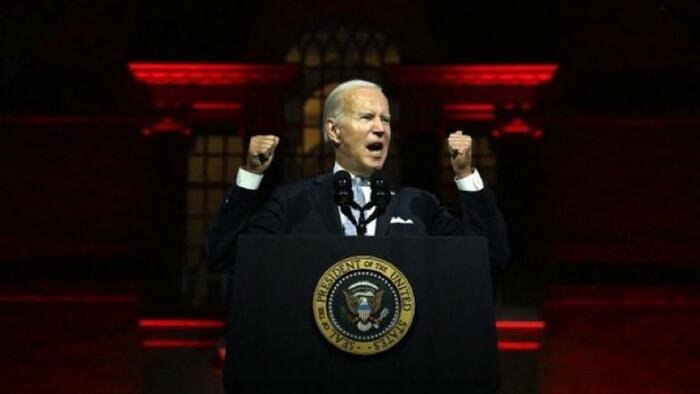By Michael Every of Rabobank
Invidious
Today’s headlines focus on disappointing earnings at NVIDIA. Despite this, world markets and the global economy, with the exception of one firm in one sector in one country, managed to survive without a complete meltdown. The neoliberal ‘Too-Big-To-Fail-is-how-we-succeed’ system is urged to work harder to create the Perfect Storm. Central banks and central bank-watchers continue to discuss 2% inflation and financial stability, while related systemic storms loom on the horizon.
In a recent article titled ‘The Powell of the Powerless’, I highlighted the dangers of a global system where the Fed not only ‘understands’ complex reality through internally inconsistent secular-religious ideology but believes it actually creates it. Today, I emphasize that the same solipsistic hubris is institutional in geopolitics, posing terrifying fat tail risks comparable to a burst bubble or a Fed policy error.
US national security advisor Sullivan is currently in Beijing to improve relations. Despite his recent statement that the Middle East was relatively calm just before October 7, the team’s actions have inadvertently allowed Iran’s proxies to expand regionally, resulting in the closure of the Suez Canal to many and a potential environmental disaster in the Red Sea after the Houthis destroyed a European oil tanker. Previous events, such as the US’s failure to prevent Russia from invading Ukraine and the hasty withdrawal from Afghanistan, underscore the challenges faced. While there have been some positive developments, including European, Japanese, and Australian support for US initiatives, the lack of long-term investment and ongoing conflicts in the Middle East have left the US without an aircraft carrier in the Indo-Pacific region when needed.
As AndrewBadger_ aptly points out, the current geopolitical approach lacks a fundamental alignment between aspirations and capabilities, a principle essential for sound grand strategy. This disconnect mirrors the Fed’s institutional mindset and underscores the need for a more nuanced and pragmatic approach.
Despite the shift away from the neocon and neoliberal ideologies of the past, contemporary US foreign policy experts continue to exhibit closed-mindedness and self-confidence that hinder course correction. The focus on ‘human rights’ and ‘environmental protection’ over traditional topics like ‘war’ and ‘country’ reflects a broader trend of ideological tunnel vision within US academia, think tanks, and political circles.
The growing geopolitical risks demand increased defense spending and efficiency to mitigate potential threats. The US, along with its allies, must address gaps in capabilities to safeguard national security and global stability. Failure to do so could result in significant economic and geopolitical consequences, highlighting the urgency of strategic investments in defense.
In conclusion, the prevailing hubris in both central banking and geopolitical circles must give way to a more pragmatic and fiscally responsible approach. The challenges ahead require a holistic understanding of the interconnected nature of global affairs and the willingness to adapt to changing realities. While financial markets may overlook these risks in the short term, the long-term repercussions could be severe for those unprepared to address them promptly.
This shift in perspective underscores the complexities of modern geopolitics and the need for a more nuanced and adaptive approach to address the challenges ahead.

